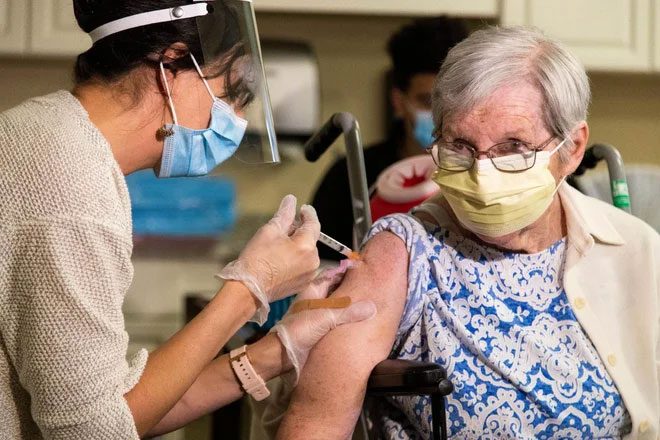Scientists believe that the evolution of Omicron is evidence that this variant will not be the final version of the SARS-CoV-2 virus that has caused headaches for the world.
“The faster Omicron spreads, the more opportunities there are for mutations, which could lead to more variants,” Bloomberg quoted Leonardo Martinez, an epidemiologist specializing in infectious diseases at Boston University.
Each infected person creates an opportunity for the virus to mutate. Omicron has several advantages over previous variants: it spreads much faster even in areas with high immunity from vaccines or previous infections.
As a result, the virus can continue to evolve as it continues to infect more people. Experts do not know what the next variant will look like or how it will affect the course of the pandemic, but they believe there is no guarantee that future variants will cause milder illness and that existing vaccines will remain effective.
Since Omicron causes less severe symptoms than Delta, this variant has raised hopes that this could be the beginning of a trend toward the virus becoming milder, like the common cold. The virus does not spread effectively if it kills its host too quickly. However, it is not always the case that viruses become less deadly over time.

Vaccines and masks remain effective preventive measures. (Photo: TNS).
The variant may also achieve its primary goal – reproduction – if initially infected individuals have mild symptoms, spread the virus to others, and then become seriously ill, explained Dr. Stuart Campbell Ray, an infectious disease expert at Johns Hopkins University.
With both Omicron and Delta circulating, many people are likely to experience dual infections – a situation that Mr. Ray refers to as Frankenvariants – “hybrids” with characteristics of both variants.
To limit the emergence of variants, scientists emphasize the need to continue public health measures such as wearing masks and vaccination. They believe that COVID-19 will not become a specific disease, like the flu, as long as global vaccination rates remain as low as they are now.
Meanwhile, the emergence of new variants is inevitable, according to Louis Mansky, director of the Molecular Virology Institute at the University of Minnesota. With so many people yet to be vaccinated, he asserts that SARS-CoV-2 still holds “the power to control what is happening.”



















































